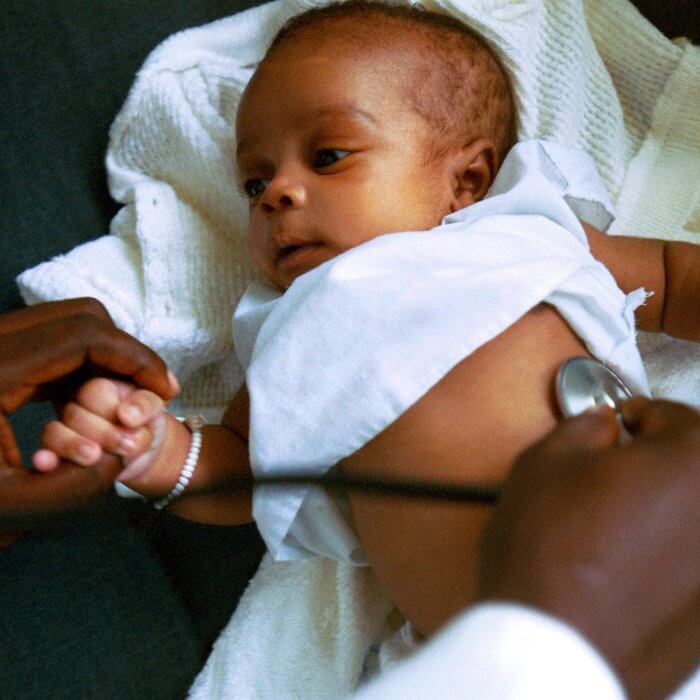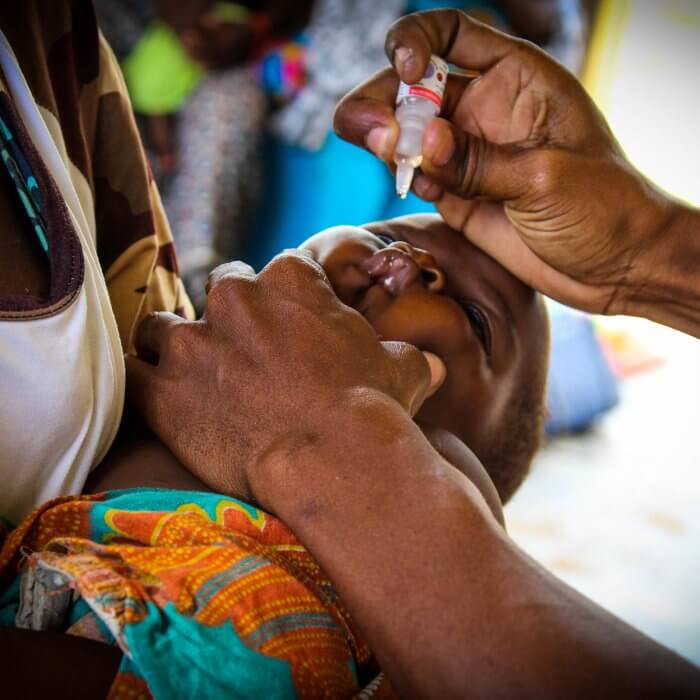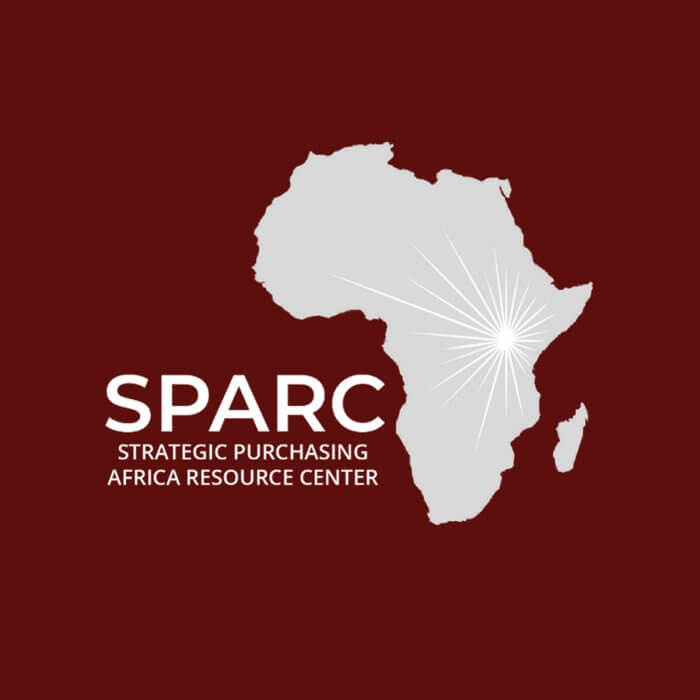R4D’s New Strategy: Partnering with country leaders who are driving systems change
How can we be better partners to leaders driving systems change?
In 2017, my colleagues and I at Results for Development (R4D) started to seriously grapple with this question: What are the right roles for international organizations if we want to support strong country-level leadership? We considered how to be better partners to leaders driving systems change in countries around the world. Achieving large-scale, lasting, equitable outcomes requires countries to be firmly in the lead.
Through listening and dialogue with our change agent partners — government officials, civil society leaders, and social innovators — we decided we wanted to become a different kind of global nonprofit. We set out to become an organization with deep long-term engagement in key countries, and a global network of experts with porous boundaries. We aspired to work in ways that enable leaders to harness that expertise to achieve results, while also acting as a catalyst of the local and global ecosystems that support change agents.
The COVID-19 pandemic, which escalated interrelated crises in the three sectors where we work — health, education and nutrition — has heightened our sense of urgency and offered opportunities to test out new approaches. As a result, we are radically transforming who we are and how we work.
Our mission is still the same: We work with change agents around the globe to create self-sustaining systems that support healthy, educated people. But with new approaches, we aim to become more responsive to change agents and local partners — supporting them to address urgent challenges and build systems that can respond to future challenges.
Supporting country leaders to address immediate challenges while also strengthening systems
Our strategy is in direct response to what change agents have told us they want — to drive their own agenda and design their own solutions, while receiving targeted expert support as they navigate complex change processes. They want partners who will support them to address immediate, pressing challenges today — like the COVID vaccine rollout, getting kids back into school or addressing the unprecedented surge in malnutrition. They also want to strengthen institutional capacities and processes to address tomorrow’s challenges.
Over the course of our 13+ years, we’ve learned a lot from our partners about how systems change happens.
- It requires thinking holistically about the interrelated components of a system, while making progress on immediate priorities.
- It requires leadership from multiple stakeholders in government, civil society and private sector to ensure buy-in for and strong implementation of solutions.
- It requires locally generated and globally relevant evidence and innovative ideas — and actionable steps to move from knowing to doing.
- And it requires the ability to learn and adapt, since solutions often don’t work perfectly the first time, and needs and priorities change.
We support country leaders to design and facilitate effective change processes that take into account these factors. Country stakeholders diagnose the root causes of the challenges they prioritize. They conduct system analyses and generate tailored evidence to understand the problem. Then they co-create solutions built on evidence and diverse stakeholder input. Successful change processes don’t stop there, change agents must also implement and institutionalize solutions — and learn what is and isn’t working to continuously adapt, iterate, improve, and capture knowledge for the future.
This process takes time, but it’s worth it.
Country leaders are consistently in the driver’s seat, determining their own timelines according to domestic processes. The solutions they generate have buy-in, are contextually appropriate and operationally feasible. This approach also strengthens the whole system instead of focusing on a single pain point — which delivers results for everyone across a population, especially the most vulnerable.
We are proud of the results this approach is achieving. For example, we worked with the Nigeria Governors’ Forum to develop a national nutrition scorecard that states are using to galvanize action on malnutrition. In Indonesia, we’re supporting the national health insurance agency to test purchasing arrangements for tuberculosis and maternal health services to improve the quality and efficiency of those services. In Tanzania, we’ve worked with leaders of early childhood development programs to integrate monitoring, evaluation and learning systems into their programs so they can continuously improve access to pre-primary education. And for 10 years, we’ve been supporting the Ghanaian government to improve health financing, quality health service delivery and the rollout of universal health coverage (UHC). We’re currently helping to scale up a primary care network model nationally.
For a more detailed example of how R4D is supporting country-led change processes, see the example from Ethiopia to the right.
Strengthening the ecosystem that change agents rely on
As country leaders navigate these complex change processes, they have told us they want access to expertise, evidence and innovative ideas from within their country and region, and from around the globe.
That’s why R4D’s strategy also focuses on strengthening the ecosystem — comprising the individuals, institutions and networks that provide critical, continuous support to country-led change processes.
We engage deeply with ecosystem actors, helping enhance or complement their capacities and connecting them with each other to catalyze learning and transfer of knowledge and ideas around the world. For example, we’ve strategically partnered with CERRHUD, a policy institution in Benin, to expand its technical scope to support Benin’s ambitious UHC journey, while also extending its geographic reach in the West Africa region. We’ve supported leaders of 100+ health policy systems research institutions in Asia to co-create a common vision for a stronger regional ecosystem and generate actionable ideas about how they can better support change agents with health system reform in their countries. In addition, we lead a global partnership that generates critical evidence about how technology can be used to achieve improved learning outcomes while also supporting education system leaders around the world to use that evidence in practice.
We explicitly build alliances and collaboration across the ecosystem to support the country-led change process described above. This has a dual purpose. It ensures country leaders have the inputs they’ve requested, such as evidence and technical support from experts deeply familiar with their local context. And it ensures that ecosystem actors gain critical experience and cumulatively build knowledge that equips them to provide ongoing support well beyond a single project.
For a more detailed example of how R4D is strengthening the global ecosystem to support country-led change processes, see the immunization example to the left.
Delivering relevant expertise from around the globe
We are skilled facilitators in systems change processes. But we also understand the importance of bringing deep technical subject matter expertise to all of our engagements. Recognizing this importance, we have built a global network of staff, fellows and partners with expertise in health, education, nutrition, and a variety of systems expertise, including sustainable financing, leadership, organization and governance (LOGS), scaling innovations, public-private engagement, market shaping and accountability and citizen engagement.
We have also pioneered three important learning approaches. Collaborative learning is an approach that brings together policymakers and practitioners to tackle common challenges by exchanging knowledge and co-developing practical solutions. Evaluation and Adaptive Learning helps program implementers conduct targeted experimental research and monitoring to iterate and improve the design of their programs. And The Coaching Approach — a movement to transform how technical assistance is delivered — engages country and regional experts to support country change processes, emphasizing facilitative coaching and mentoring roles.
We believe expertise and support provided to change agents should come from individuals and institutions within the country or region. These country and regional experts understand political economy and stakeholder issues, and they are better positioned to ensure continuity in complex, multi-year reform processes. They can also build and convey institutional memory across various initiatives.
In countries where we have multi-program or regional engagements — Ethiopia, Ghana, Indonesia, Kenya, Nigeria and Tanzania — we have invested in teams of country and regional experts who continuously engage with change agents and become part of the country’s ecosystem. Partnerships with country and regional think tanks, policy support organizations and academic institutions are also central to our strategy. We invest in long-term relationships and create space for our partners to lead. This approach ensures that change agents receive relevant expertise and support, and it also helps to strengthen the ecosystem.
For a more detailed example of how R4D is partnering with African institutions to support country-led change processes, see the example to the right.
Looking forward
The world is at a critical juncture. How we respond to this moment matters. At R4D, we are reimagining our role and moving forward with a strategy that makes us better partners to the change agents we support — and, ultimately, more impactful.
If we are successful, we expect to see:
- Progress on immediate and urgent challenges facing countries right now
- Stronger systems within countries that continuously improve, adapt to new challenges and serve entire populations
- Country leaders who are listened to, empowered, supported as they navigate complex change processes
- Stronger country and regional institutions that become the go-to source of expertise and support for change agents
- Stronger global institutions and networks that build and share knowledge and are responsive to expressed country challenges and priorities
And as a result, more people will be able to access affordable, high-quality health care, more children will be in schools and learning, and malnutrition will be dramatically reduced.
We also hope this new approach represents concrete steps in the movement to decolonize our field by shifting the locus of power, expertise, and support to countries leading their own processes of change.
Though we acknowledge that we are at the beginning of a learning journey, we hope our results will inspire future models of global development. The sea change in our field is now, undeniably here, and long overdue.
This post is the first of many we will have in unpacking our new strategy and reporting on our progress along the way. And we welcome your feedback.


















